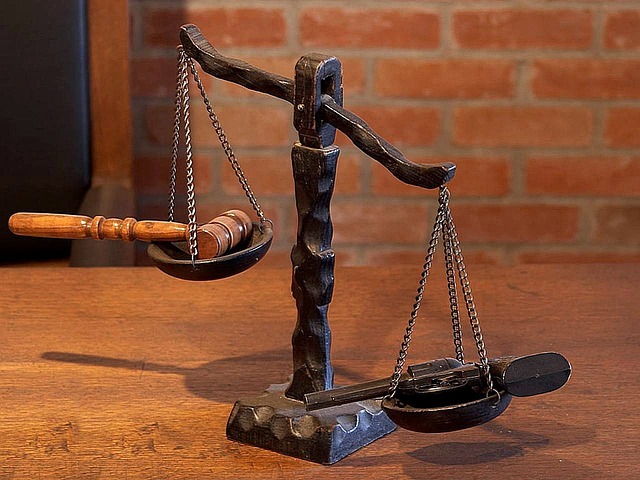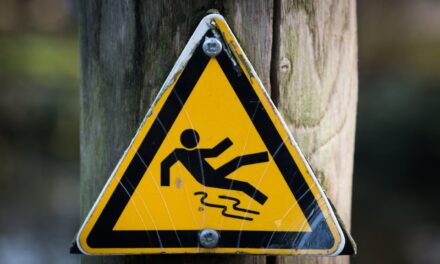Personal injury law, also known as tort law, encompasses a wide range of legal protections available to individuals who suffer harm due to the negligence or wrongful acts of others. Understanding the basics of personal injury law is essential to protect your rights and secure compensation if you’ve been injured in an accident. This article provides an overview of personal injury law, your rights, and how to navigate the legal process effectively.
What is Personal Injury Law?
Personal injury law deals with civil cases in which an individual suffers harm due to another party’s negligence or intentional misconduct. The harm may result from accidents, such as car crashes, medical malpractice, slip-and-falls, or defective products. The key component in personal injury cases is that the victim, or plaintiff, must prove that the other party, or defendant, was at fault.
Key Elements of a Personal Injury Case
To succeed in a personal injury claim, the plaintiff must establish four critical elements:
- Duty of Care: The defendant had a legal obligation to act in a manner that would avoid causing harm to others. For example, drivers must operate their vehicles safely to prevent accidents.
- Breach of Duty: The defendant failed to uphold their duty of care by acting negligently or recklessly. In a car accident case, this could be speeding or running a red light.
- Causation: The plaintiff must show that the defendant’s breach of duty directly caused the injury. In legal terms, this is known as “proximate cause.”
- Damages: The plaintiff must demonstrate that they suffered measurable harm, such as medical expenses, lost wages, pain and suffering, or emotional distress.
Types of Personal Injury Cases
There are various types of personal injury cases, each with unique legal considerations. Here are some common examples:
Car Accidents
Car accidents are one of the most frequent causes of personal injury claims. Whether it’s a rear-end collision, a multi-vehicle pileup, or a pedestrian accident, victims often suffer severe injuries like broken bones, head trauma, or whiplash. In car accident cases, the injured party can seek compensation for their medical bills, property damage, and other losses from the at-fault driver’s insurance company.
Medical Malpractice
Medical malpractice occurs when a healthcare professional, such as a doctor or nurse, provides substandard care, leading to injury or death. These cases can involve misdiagnosis, surgical errors, medication mistakes, or failure to provide proper treatment. Victims of medical malpractice must prove that the healthcare provider violated the standard of care expected in their profession, resulting in harm.
Slip and Fall Accidents
Slip and fall cases arise when a person is injured due to unsafe conditions on someone else’s property, such as wet floors, uneven pavement, or poor lighting. Property owners are responsible for maintaining safe premises, and if they fail to address hazardous conditions, they may be liable for injuries sustained on their property.
Product Liability
Product liability cases involve defective or dangerous products that cause harm to consumers. These cases can include faulty vehicle parts, harmful pharmaceutical drugs, or unsafe household appliances. Manufacturers, designers, and retailers can be held accountable for injuries caused by defective products.
Your Rights in a Personal Injury Case
If you’ve been injured due to someone else’s negligence, you have several legal rights that protect you throughout the personal injury process.
Right to Compensation
One of the most important rights in a personal injury case is the right to seek compensation for your losses. This may include economic damages such as medical expenses, lost wages, and property damage, as well as non-economic damages like pain and suffering, emotional distress, and loss of enjoyment of life.
In some cases, you may also be entitled to punitive damages, which are intended to punish the defendant for particularly reckless or malicious behavior. However, punitive damages are rare and typically awarded in cases involving extreme misconduct.
Right to Legal Representation
Another critical right is the ability to hire a personal injury attorney to represent you throughout the legal process. A skilled attorney can help you build a strong case, gather evidence, negotiate with insurance companies, and advocate for your best interests in court if necessary.
Many personal injury lawyers work on a contingency fee basis, meaning they only get paid if you win your case. This allows injured individuals to pursue justice without worrying about upfront legal fees.
Right to a Fair Settlement
Insurance companies often attempt to settle personal injury claims quickly and for as little money as possible. However, you have the right to reject an initial settlement offer if it does not fully compensate you for your injuries and losses. Your attorney can negotiate on your behalf to ensure that any settlement is fair and covers all of your damages.
Right to a Jury Trial
If a settlement cannot be reached, you have the right to take your case to court and present your claim before a jury. A jury will listen to the evidence presented by both sides and decide whether the defendant is liable for your injuries and, if so, how much compensation you should receive.
The Statute of Limitations in Personal Injury Cases
Every state has a statute of limitations, which is the deadline by which a personal injury claim must be filed. This time limit varies depending on the type of case and the jurisdiction in which the injury occurred. For example, the statute of limitations for car accidents may be different from that of medical malpractice or product liability cases.
Why the Statute of Limitations is Important
Failing to file a personal injury lawsuit within the statute of limitations can result in the court dismissing your case, regardless of its merits. Therefore, it’s crucial to be aware of the time limits that apply to your specific case and to take action promptly after an accident or injury.
Exceptions to the Statute of Limitations
There are certain exceptions that may extend or pause the statute of limitations. For instance, if the injured person is a minor or mentally incapacitated at the time of the injury, the deadline for filing a claim may be delayed until they reach a certain age or regain capacity. Similarly, in cases where the injury is not immediately apparent, such as in medical malpractice, the statute of limitations may start from the date the injury was discovered rather than the date it occurred.
Steps to Take After an Injury
If you’ve been injured in an accident, taking the right steps early on can significantly strengthen your personal injury case. Here’s what you should do:
- Seek Medical Attention: Your health should be the top priority. Even if you think your injuries are minor, see a doctor to document your condition and ensure you receive proper treatment.
- Gather Evidence: Collect as much evidence as possible at the scene of the accident, including photographs, witness contact information, and police reports. This evidence can be critical when establishing liability.
- Notify the Insurance Company: Report the accident to your insurance company, but be cautious about providing statements or accepting settlements without consulting an attorney.
- Consult a Personal Injury Lawyer: Speak with a lawyer to understand your legal rights and options. An attorney can evaluate your case, advise you on potential compensation, and guide you through the legal process.
Conclusion
The personal injury law is designed to protect individuals who have been harmed due to someone else’s negligence. Knowing your rights and the legal process can empower you to pursue justice and secure the compensation you deserve. If you’ve been injured, it’s essential to act quickly, gather evidence, and consult with a personal injury attorney to ensure your rights are fully protected.






